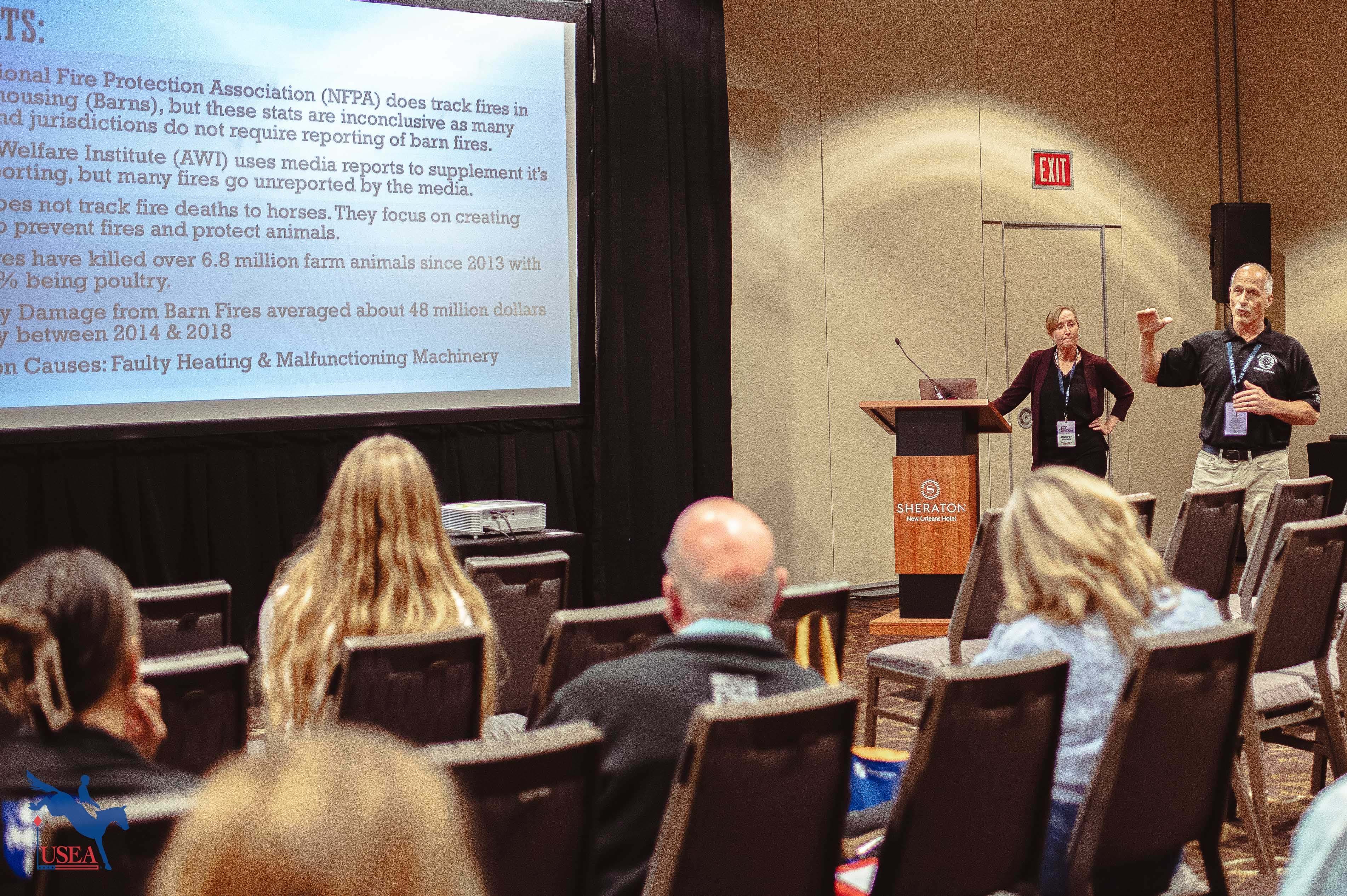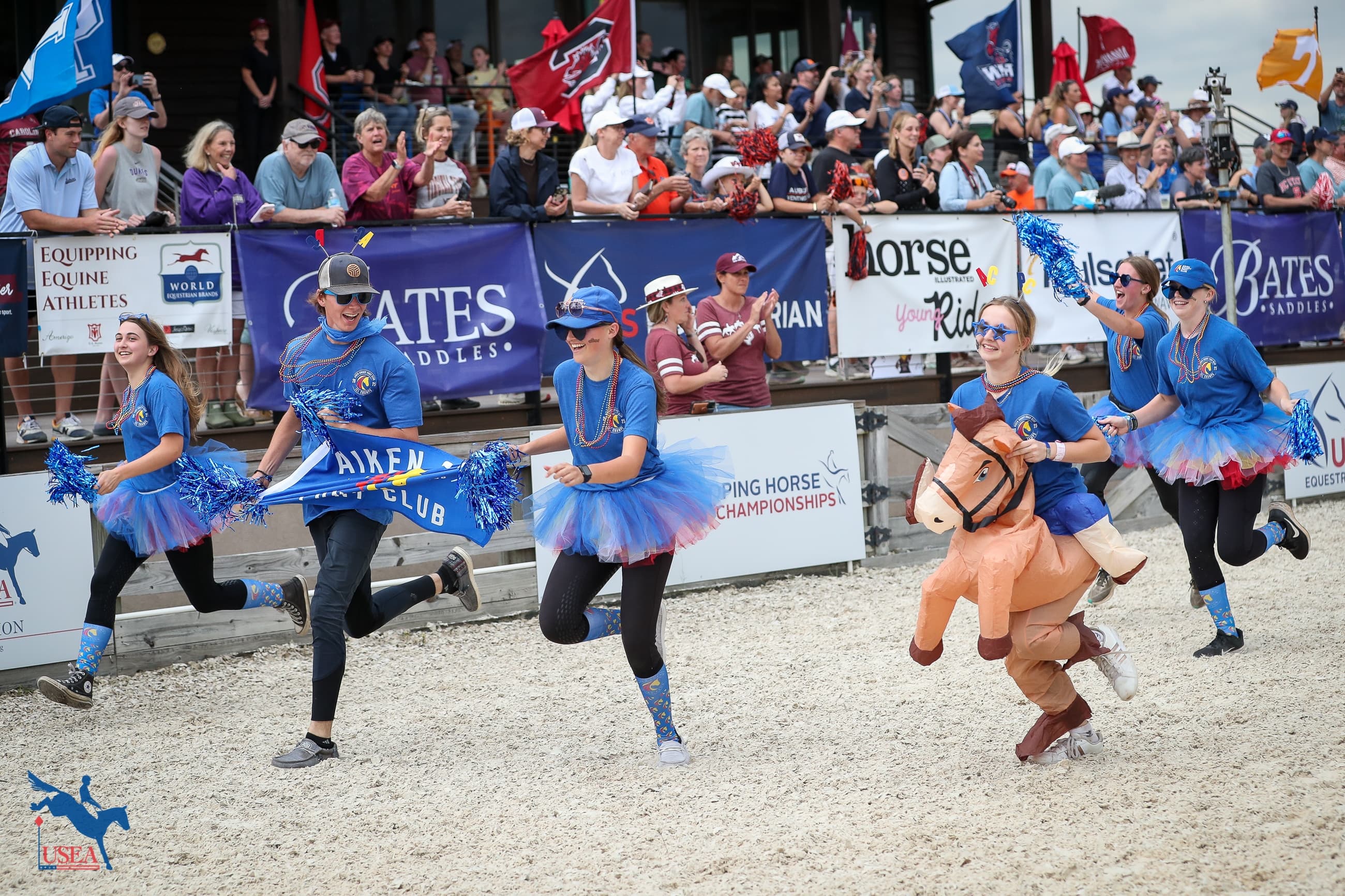15 Business Insights from Leading Equestrian Professionals
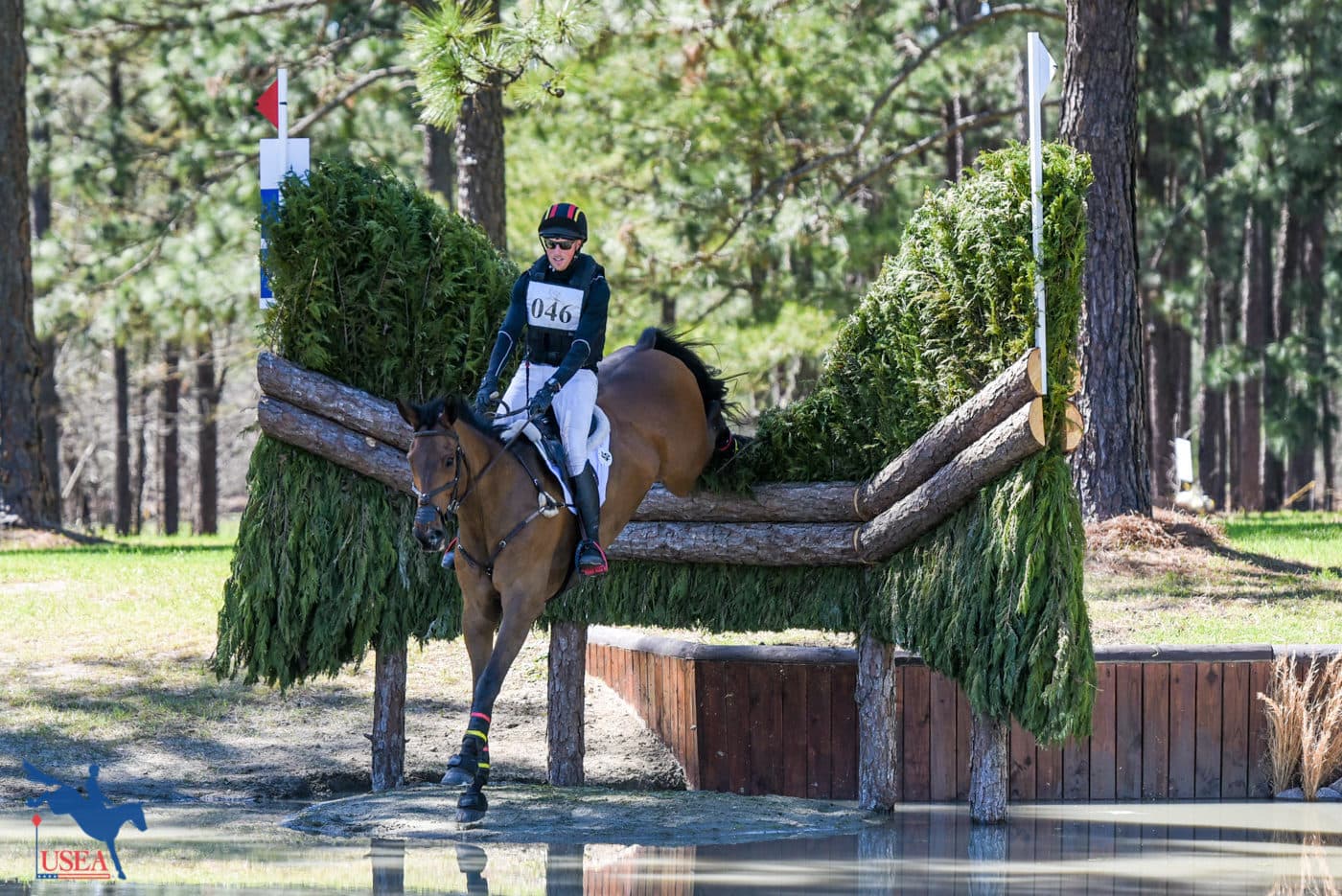
The following is provided through a partnership between STRIDER and the USEA. As part of our commitment to diversity, enabling access, and building capacity throughout the industry we are pleased to provide this content to benefit the sport of eventing.
Last fall, USEA educational partner STRIDER continued their popular Professional Development Webinar Series for equestrian business owners with "Proven Business Models in the Horse World." This interactive panel discussion presented by Ride iQ featured Olympic Eventer & International Show Jumper Doug Payne, International Dressage Rider Lauren Sprieser, and acclaimed horsemanship trainer and colt-starting expert Colton Woods.
Focused on professionalism behind equestrian sports and moderated by Helena Harris of Stall and Stable, the webinar shared tips and best practices that can serve all levels of equine business operations.
Whether you’re just starting out as an eventing training facility or looking for ways to optimize your business this year, you won’t want to miss these top takeaways.
On Balancing Business & Competitive Goals:
Identify your expertise and how to commoditize it. All of the panelists have clearly identified core offers in their business models and a variety of revenue streams that support both their business and personal / competitive goals.
Doug Payne says, "it is a balancing act, and it’s terribly difficult. Competitive aspirations and business aspirations are divergent in many ways. Our ultimate goal is to compete for the United States. We want to bring in enough revenue through training and clinics to keep everything going, but for us, we’re rolling everything back into the competitive side of things because our ultimate goal is to represent our country."
Business owners need to ask: what value do I bring forward to my clients and the community-at-large, and how can an income stream based off that value bring me closer to my goals?
On Time:
“Time is the one thing you’ll never get back. Value your time. At best we can save it, but we cannot make more of it.” - Helena Harris
Identify technologies and tools that can help you to save time in your day-to-day business. The three panelists all identified automated tools that work for them to save time with lesson scheduling, intra-team communication, and the collection of payments.
On Resources:
“Business modeling exercises can come in handy. When you are listing out your value proposition, who your target clients are, what your revenue streams will be, you also need to identify your resources. That can be your business partner, working students, horses, your facility, location, etc. All of those factors contribute but don’t always sit front of mind for entrepreneurs.” - Helena Harris
“Geography is important. If you teach a lot of people you need to be somewhere that is easy to get to, if you have high performance horses you need to be in an area with access to good farriers and good veterinarians.” - Lauren Sprieser
“Find good employees, make sure that they feel appreciated. It’s crazy important to try to hang on to the good ones” - Doug Payne
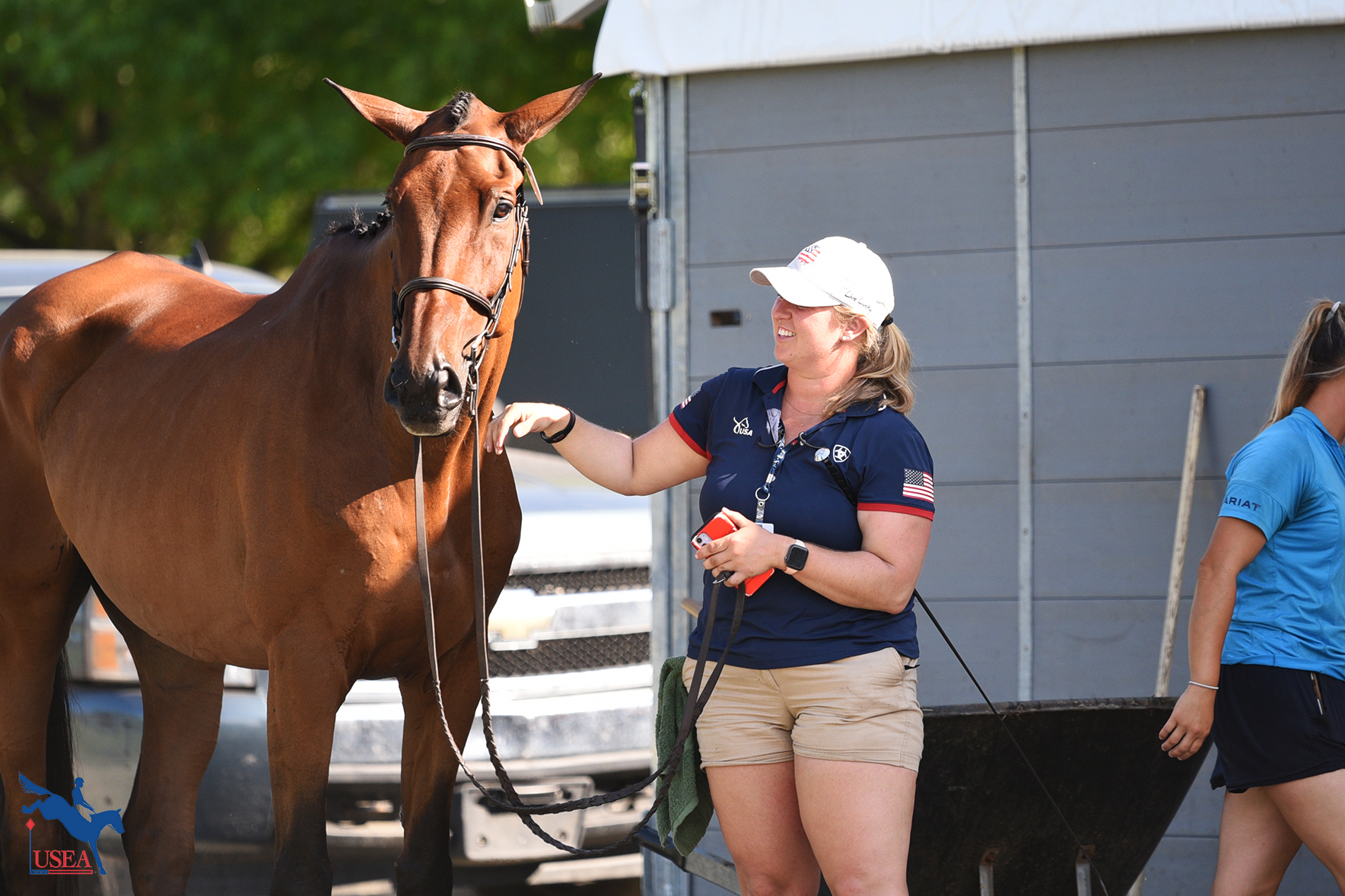
On Diversification:
“You have to have 100 pots on the fire. You throw a ton of stuff out there, start to gain success in your industry that starts to draw attention which opens up other doors and opportunities.” - Doug Payne
“Diversification is financially critical… I personally love to have many places to put my energy... Then if something is going wrong it’s not just that one thing you are dependent on.” - Lauren Sprieser
Varied income streams are key for equine business owners, some considerations include identifying ways to grow your business that don’t physically require you to be in the barn aisle or teaching a lesson. Doug Payne collects book royalties, Lauren Sprieser has both a revenue-generating social media endeavor and is paid to pen articles for various publications, and Colton Woods has a paid video library as well as a course for aspiring professionals.
On Burnout and How to Avoid it:
“When you’re a business owner you’re either working on something that takes your energy away, or creates energy.” - Helena Harris
“Don’t sacrifice your passion for your profit.”- Colton Woods
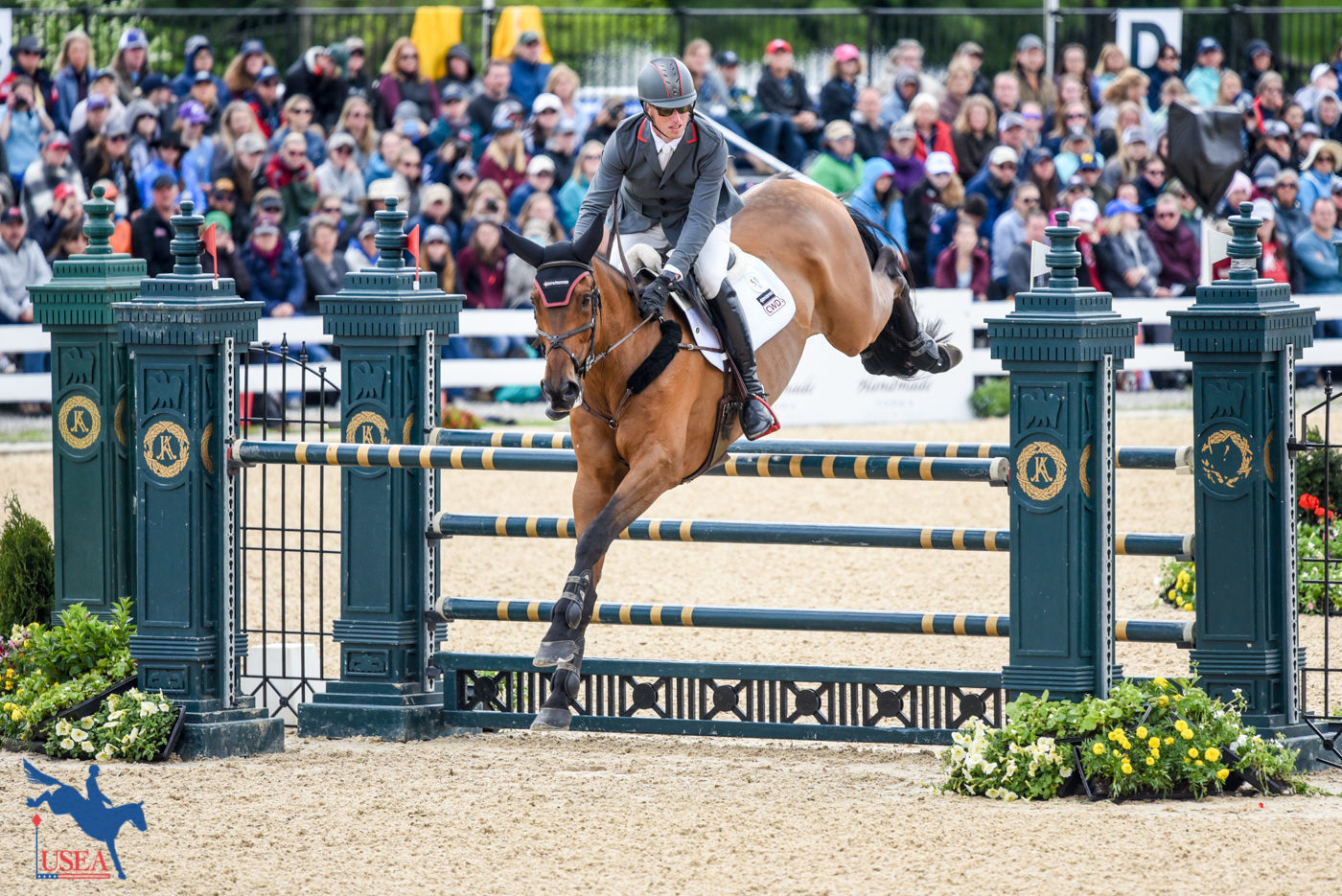
“The people I love working with are the ones who are completely engaged. They don’t have to be the most talented or on the most talented horses but want to help, want to learn as best they can, and are really willing to put in a massive amount of effort.” - Doug Payne
“When I get to the barn I ride my personal horses first, then I ride my client horses. Because I know I will always make time to ride my clients’ horses. It’s easy to fall into a habit of getting through the day riding your clients’ horses first, and pushing your personal horses. But, if you do that too many times in a row your own personal goals won’t be fulfilled and you’ll start to feel what some people call burnout.” - Colton Woods
Some Bonus Best Practices:
“Know better, do better. If I learn something new next week I might change things.” - Colton Woods
“Don’t be afraid to relocate. It allows you to wipe your slate clean of business practices that didn’t work.” - Doug Payne
“I am very fortunate to be sponsored by many companies in the form of product. While I am not making cash dollars doing that I consider it a part of my day-to-day job to ensure that I am promoting those people’s products.” - Lauren Sprieser
“Be pushing forward all the time.” - Doug Payne
This webinar took place as part of STRIDER’s Professional Development Webinar Series. You can watch the full video here to pick up even more tips, best practices, and insights from these top riders.
STRIDER is the leading entry platform across disciplines for the equestrian industry. .
From enabling riders to discover and book the perfect opportunity to helping equestrians across the industry grow and run their businesses, STRIDER fosters connections to top-tier experiences. Please visit www.striderpro.com to learn more about the suite of software products and services available.

